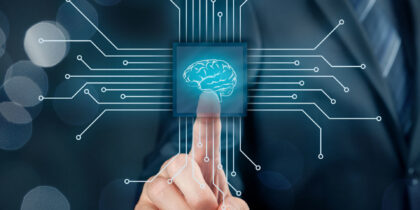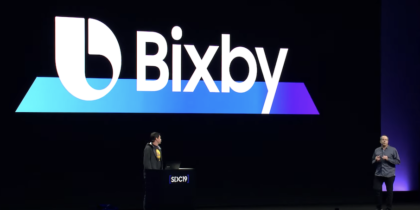Consumer and business users alike are abuzz about the potential of natural language processing (NLP) and how it enables voice assistants as front ends for routine and even specialized tasks.
NLP is a set of technologies that enables machines to interact with humans in a natural language to deliver information and insights as if speaking to another person. It’s a great equalizer as a front end because there’s no need for users to memorize keystrokes or commands.
The core components of natural language processing include syntax analysis for parsing sentences and identifying parts of speech; entity recognition for identifying persons, products, events, media and locations; and sentiment analysis for determining the sentiment expressed in the text. Each of these elements helps the program understand the sentence structure, facts posed and emotion conveyed, respectively.
NLP at Home and in the Enterprise
Customer service was perhaps the first practical application of NLP for corporate clients. Since the late 1990s/early 2000s, NLP startups have been trying to create platforms to improve the user experience of online customer self-service knowledge bases, with varying degrees of success. Much of this work predates today’s AI programming languages and application programming interfaces (APIs).
Work Without Barriers With AI
View the infographic to learn how AI devices enable the future of work. Download Now
Today, the best-known application of NLP for consumers is the voice assistant (VA) sitting at the center of many smart homes, controlling thermostats, lights and appliances, and reading users’ calendars for the day.
NLP and VA are also finding their way into health and eldercare applications. Hospitals and clinics are using these technologies to improve patient engagement. Certain patients could avoid frequent office visits if more healthcare IT systems open up voice interfaces for patients to monitor their own conditions. As healthcare providers get more innovative with technology to lower healthcare costs, we can expect to see this trend grow.
Additionally, major financial institutions are building conversational interfaces to enable customers to directly interact with their account data, highlighting the increasingly large role robo-advisors and artificial intelligence will play in the finance industry.
Benefits From API Advancements
NLP in the enterprise now benefits from advancements in AI programming languages. Here are some examples:
- Querying big data and analytics solutions via speech enables even the most non-technical business executive to interact with corporate data efficiently. Think of a future where a CxO can ask for the latest sales data and instantly receive it without having to run any reports or even use a sales dashboard. Or, an executive querying ERP data could use their voice to get information on factory production without having to deal with the complexities of ERP reporting.
- Natural language APIs open NLP core features to a wider audience of developers. Such APIs will move NLP out of a once-niche technology full on into the mainstream because of its availability and documentation.
- Searching documents residing on a cloud collaboration platform will be easier, saving users from complex queries such as Boolean searches. Natural language search is also better suited for UX on mobile client apps.
- Algorithmic trading uses NLP to withdraw information from news announcements for analysis, allowing businesses to extract details from large data sets in financial markets.
The Future of Consumer and Enterprise Technologies
A future trend to watch will be the practical application of NLP, particularly voice, to the DevOps toolchain. Imagine monitoring applications, provisioning virtual machines (VMs) and running the rest of the development cycle tasks using chatbots and voicebots as the primary interface. A VA could answer questions about the health of software in development and production either through text or voice. Such technology advancements could move operations staff away from dashboard overload. Executive stakeholders could also enjoy voice reports about the systems under their responsibility, instead of spending time reading through documentation.
AI and NLP, along with biometric scanning and machine learning, could bring new levels of physical and cybersecurity to businesses and government organizations. These technologies could also help businesses improve the customer experience by providing deeper insights that weren’t available via interactive voice response (IVR) and other traditional customer interaction channels.
Unlock the true potential of mobility with the Galaxy S8, which enables mobile productivity from anywhere.







